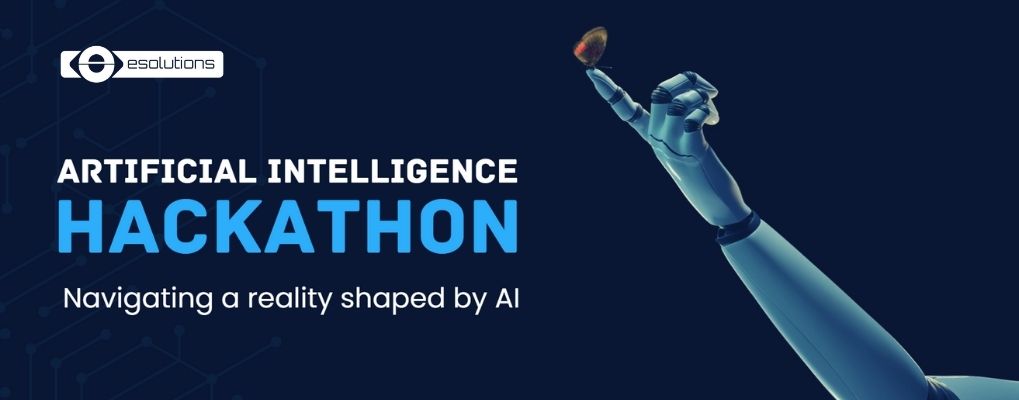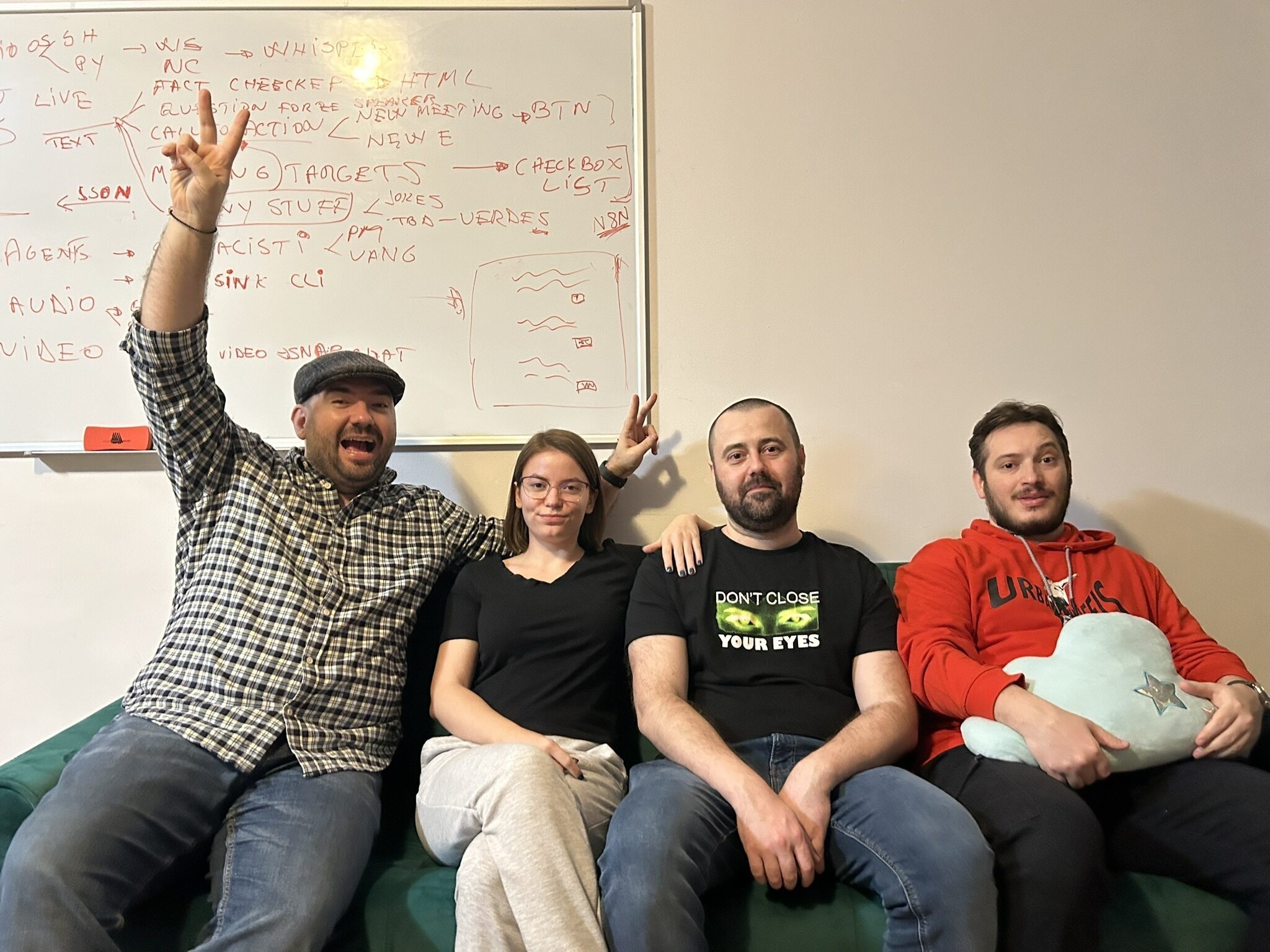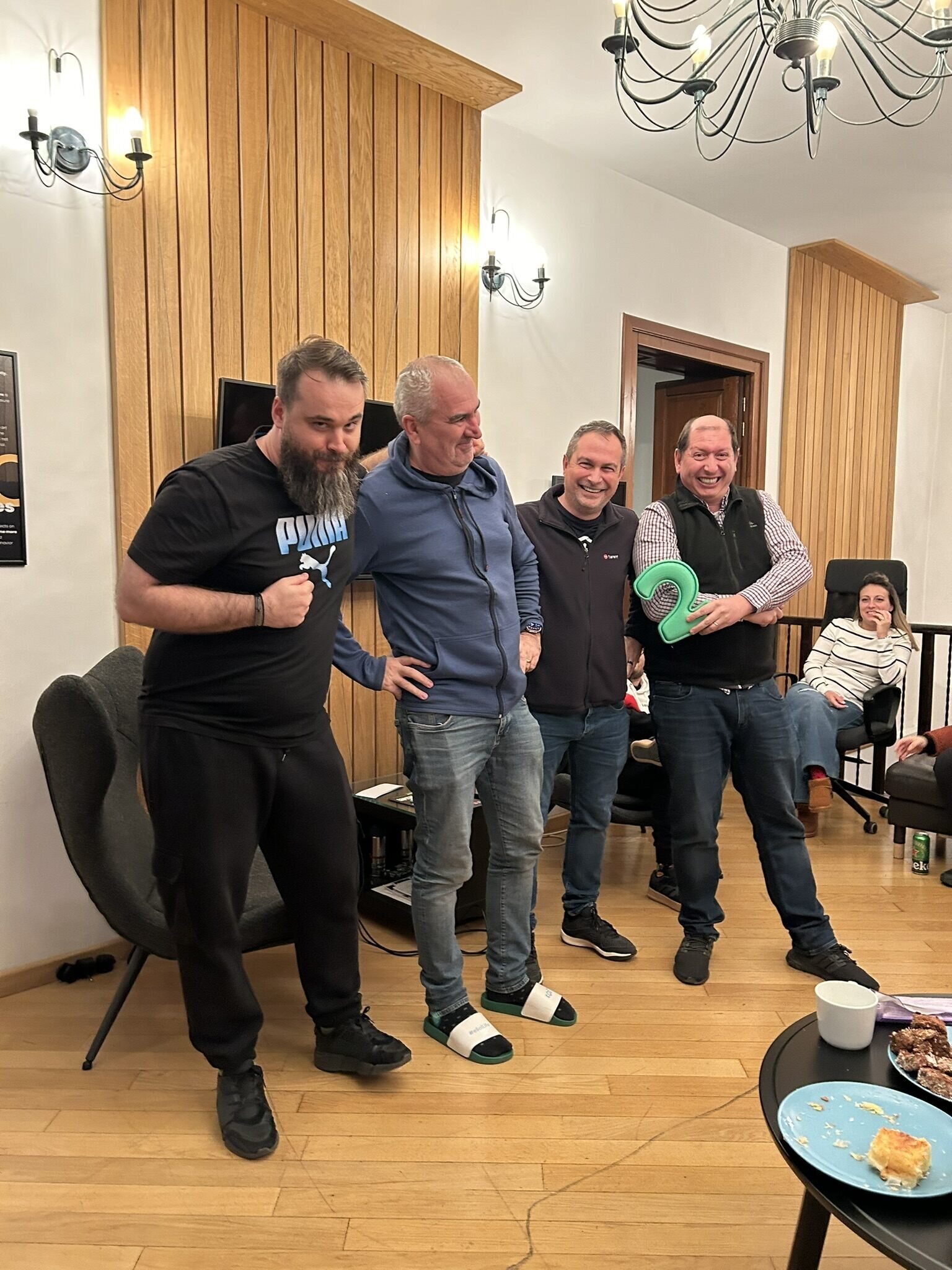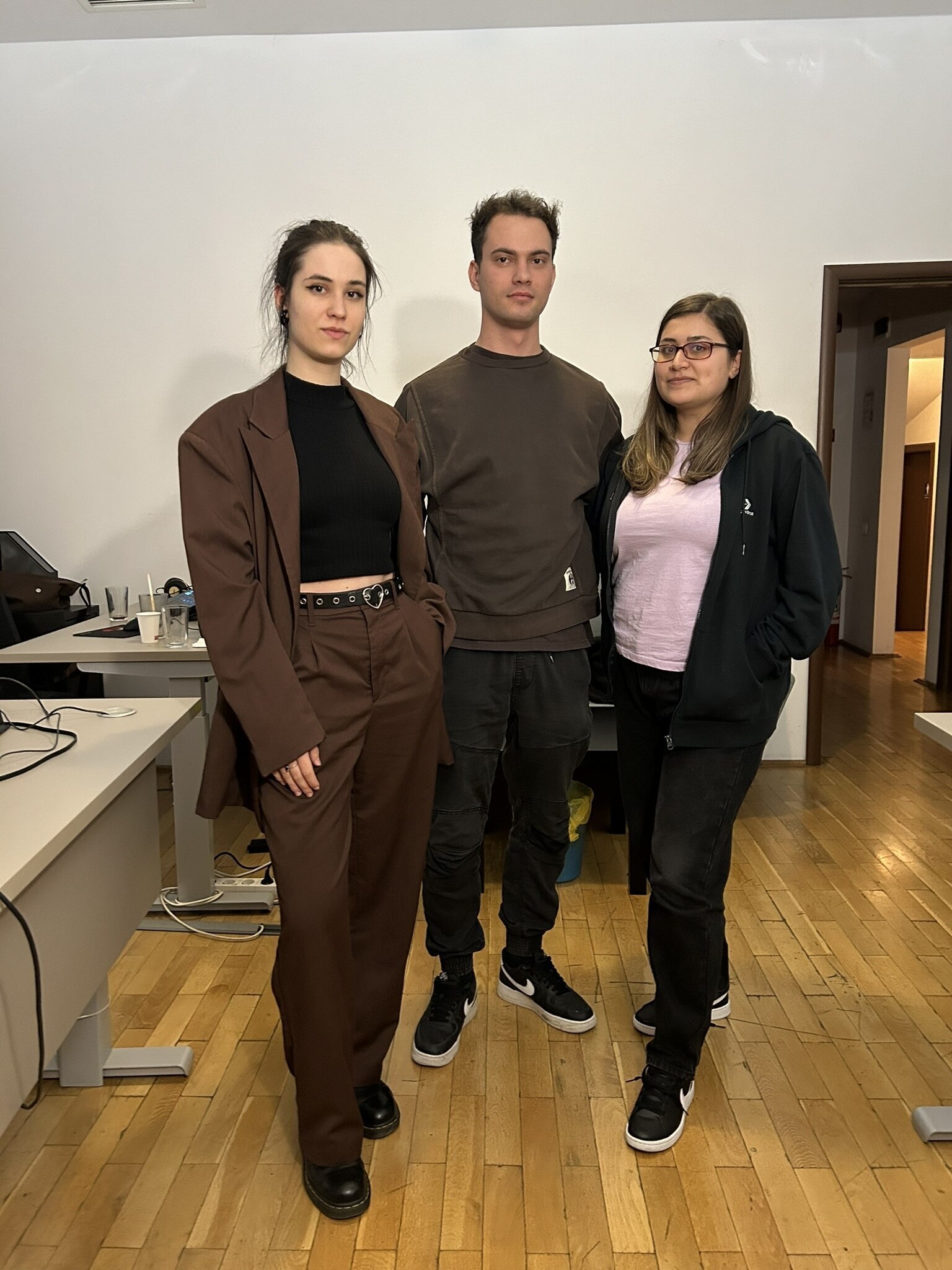
4 teams, 14 participants, 24 hours, 4 amazing AI-based projects, 3 tech experts as jurors, loads of fun and sweets - the 8th edition of the eSol Hackathon in a nutshell.
This year’s Hackathon came with a few important changes! It’s the first year when the Hackathon revolves around a theme! With AI on everybody’s lips, it was high time to focus even more on it. Understanding and knowing what and how to best work with AI means spending time developing, testing, and thinking about innovative solutions that can make our professional and personal lives easier! And the Hackathon has proved to be the perfect opportunity for this!
We were very excited to see what our colleagues came up with at this year’s Hackathon, and we’re sure you are too, so let’s take a look at how it all went on 15-16 November!
The Hackathon started as usual at 5 PM on Friday with each of the team presenting, in short, the idea they were going to work on for the next 24 hours.
Project theme - AI-related
Hackathon duration - 24 hours
Presentation time - 10 minutes
Q&A time - 5 minutes
Now let’s take a look at what their projects entailed, what ideas they had, and how much they managed to achieve in the given time!
The jurors had to rate the projects based on four different aspects, namely:
Innovation and Creativity
How original and innovative is the idea? Does the project bring something new or offer a different perspective on an existing problem?
Implementation and Execution
How well is the project developed from a technical standpoint? Is the functionality and stability of the solution in line with the proposed specifications? Does the project include a functional demonstration or prototype that clearly illustrates the proposed idea?
Scalability and Viability
Can the solution be expanded or scaled for widespread use? Does it have long-term development potential? Is the project economically and technically viable for implementation in the real world?
Overall Impression
Does the team clearly present the idea, technical solution, and benefits of the project? Are the explanations concise and relevant to the jury and audience? Does the presentation highlight the project's strengths and address critical questions from the audience?
Now that we know what to look at, let’s take a look at the projects!

Algorithm Invaders built MoshAI - an AI meeting assistant that uses any audio output to generate a transcript of the conversation, questions for the speaker based on the provided context, and tasks based on prompts and integrations with other tools such as Atlassian Jira, Google Calendar, and Gmail.
Project: MoshAI
Tech Stack: n8n, Whisper, Blackhole, ChatGPT, Python, React, Typescript, Electron, WebSocket, Docker
Team members: Emil Calofir, Alexandru Verdes, Petru Valentin Dugan, Andrada Popa

AI4ceps’s project focused on improving the performance of SQL queries using artificial intelligence. The team developed a tool that analyzes SQL queries and provides optimization suggestions based on machine learning models. This tool helps developers and database administrators identify and address inefficiencies in queries, leading to better application performance and more efficient resource usage.
Project: Optimate PostgreSQL
Tech Stack: ChatGPT
Team members: Viorel Anghel, Miron Brezai, Andrei Popovici, Silviu Cutieru
.jpg)
The AIgents team built an application that helps the user choose whether to go to a restaurant/hotel or any type of place, or which product to buy, based on user reviews, relying on the overall sentiment of the descriptions provided by people. Additionally, it offers the possibility to analyze how harmful a food product is based on its ingredients.
Project: SmartChoice
Tech Stack: Python, Sublime, OpenAI, Google Maps API, IOs, Chrome extension, scrapper, Kotlin, Android
Team members: Cezar Alin Ene, Ionut Cristian Popa, Mircea Malaescu

The AI-scream team worked on AIFirulFermecat, an application that uses artificial intelligence to generate crochet patterns. It is based on the OpenAI API and is written in Python. For a more accurate generation, prompt engineering was utilized along with a set of patterns obtained by downloading PDFs online using a scraper. Additionally, work was done in parallel on a GPT-4 model, which was fine-tuned using a set of 10 examples.
Project: AIFirulFermecat
Tech Stack: Scraper, Parser for patterns, Prompt engineering, Fine-tuning (10 examples)
Team members: Eva Simpetru, Larisa Patrascu, Adrian-Robert Tatuc
A round of applause for all participants (and organizers) for this year’s AI Hackathon, and if you want to see how our colleagues worked, take a look here!